
February 21, 2026
How to Prevent Keloid Scars After Surgery A Definitive Guide
Discover how to prevent keloid scars after surgery with our definitive guide. Learn expert strategies for risk assessment, surgery, and post-op scar care.
Oct 2, 2025
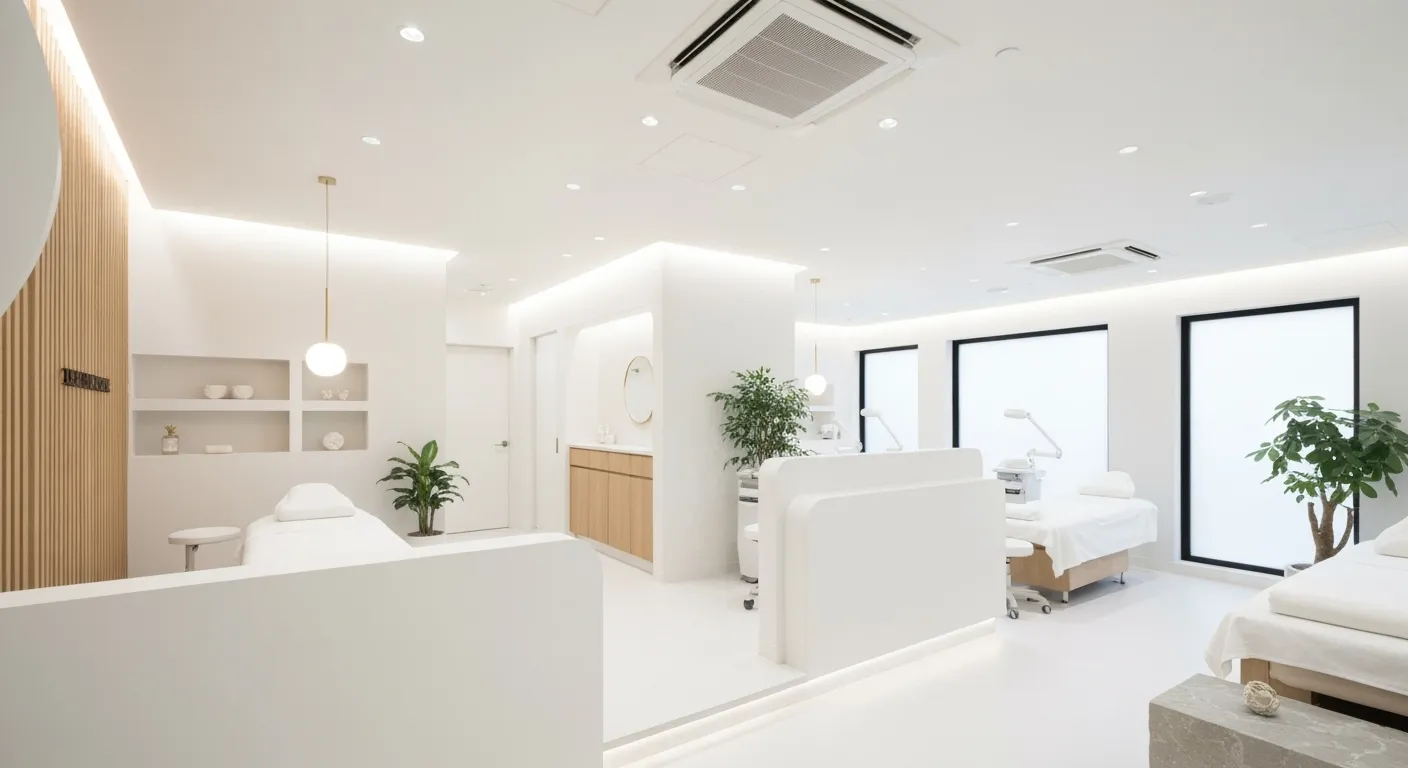
Plastic surgery has grown in popularity worldwide, profoundly influencing not only physical appearances but also the psychological and social realms of those who undergo it. This article delves into the personal experiences of patients, the psychological and social outcomes of cosmetic procedures, and the nuanced realities that underlie perceptions of beauty and self-worth. Drawing from extensive research and firsthand narratives, we unpack the complex interplay between aesthetic interventions and mental well-being, offering insights into the benefits, risks, and considerations that shape patient journeys.

Plastic surgery can significantly boost an individual’s self-esteem and body image, leading to enhanced confidence and social participation. Many patients report feeling happier and more satisfied with their appearance post-procedure, which can positively influence their overall mental well-being.
However, these benefits are not universal. On the downside, some individuals experience dissatisfaction, especially when expectations are unrealistic or outcomes do not align with their hopes. Patients with pre-existing mental health issues such as Body Dysmorphic Disorder (BDD), anxiety, or depression are more prone to poor results. These individuals often do not see improvements, or their condition worsens after surgery, sometimes leading to increased anger, hostility, or social withdrawal.
Studies also reveal an alarming link between cosmetic procedures, especially breast augmentation, and elevated risks of mental health problems, including higher suicide rates among women. This association suggests that for some, plastic surgery might not resolve underlying psychological struggles, and in certain cases, may even exacerbate them. Overall, the psychological impact of plastic surgery is nuanced, influenced by personal expectations, mental health history, and individual circumstances.
While many transformations are positive, these risks underline the importance of thorough psychological screening before surgery. When managed carefully, plastic surgery can contribute to improved self-image and life satisfaction, but neglecting mental health considerations can lead to adverse outcomes. Understanding this complex interplay helps ensure that patients receive not only physical but also psychological support throughout their surgical journey.
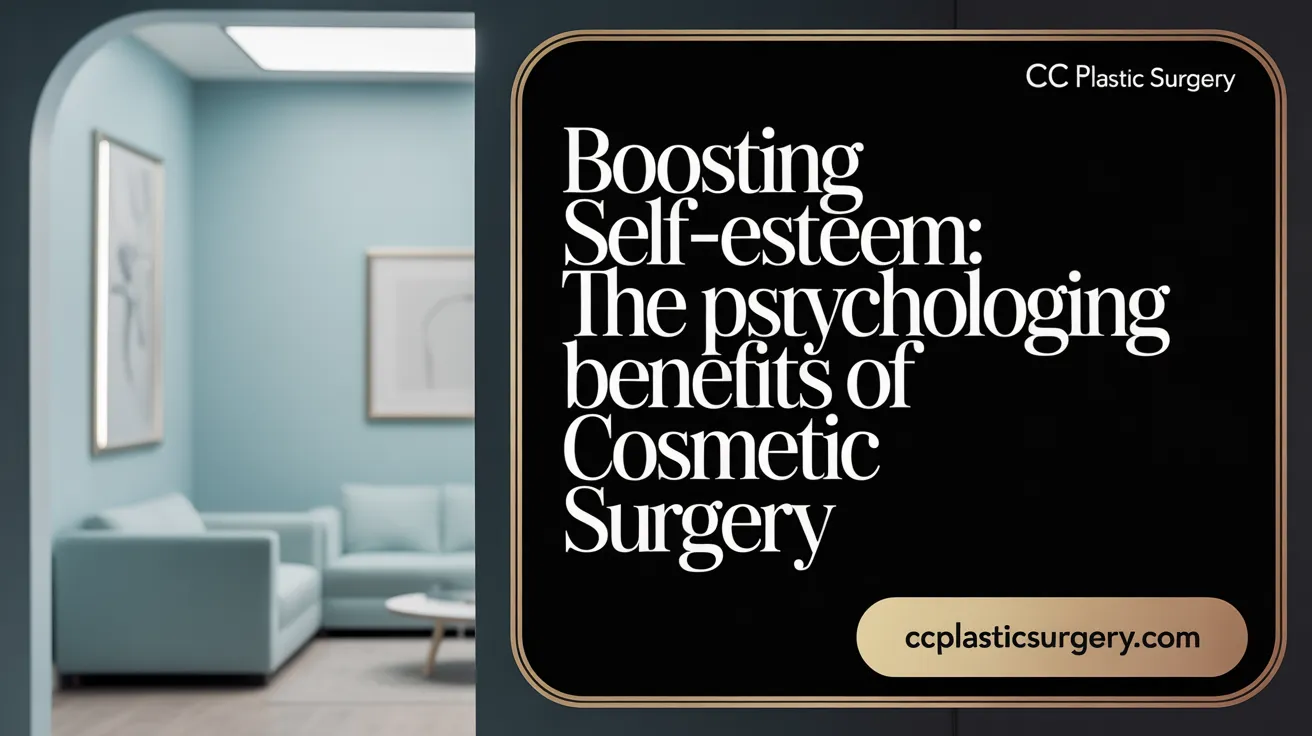
Cosmetic surgery has the potential to significantly improve an individual’s mental health and self-esteem. Many patients experience enhanced body image, which leads to increased confidence and a reduction in feelings of psychological distress. Postoperative reports often include improved quality of life, with individuals feeling more comfortable in social settings and more satisfied with their appearance.
Research shows high satisfaction rates following procedures such as breast augmentation and abdominoplasty, with many patients describing a boost in self-esteem and overall happiness. These positive effects can contribute to better social functioning, stronger personal relationships, and greater professional confidence.
However, the impact of cosmetic surgery on mental health is not uniformly positive. For some, especially those with pre-existing conditions like body dysmorphic disorder (BDD), anxiety, or depression, surgery can sometimes worsen psychological issues. Patients with unrealistic expectations, or those seeking validation from external sources, risk dissatisfaction and emotional setbacks.
Societal influences, particularly social media and prevailing beauty standards, also play a role. They can prompt individuals to pursue cosmetic procedures as a way to meet certain ideals, which may lead to repeated surgeries, dissatisfaction, or a cycle of dependency on aesthetic enhancements.
To optimize psychological benefits, preoperative psychological screening and managing realistic expectations are crucial. When combined with professional support, cosmetic surgery can serve as a helpful approach to bolster self-esteem and mental well-being. Nonetheless, it should not replace addressing deeper psychological concerns, and patients should be fully informed of both the benefits and risks involved.

Cosmetic surgery can significantly influence social confidence and overall quality of life. Many individuals experience increased self-esteem after procedures like breast augmentation or abdominoplasty, enabling them to participate more comfortably in social activities and relationships.
However, these benefits are not universal. Some patients face negative social consequences, especially if they have unrealistic expectations or underlying mental health conditions such as body dysmorphic disorder. These issues can lead to social withdrawal, feelings of isolation, or dissatisfaction, which may persist despite the physical changes.
Social media platforms also play a major role in shaping perceptions of beauty. They often promote idealized images and unrealistic standards, exerting pressure on individuals to conform to specific aesthetic ideals. This influence can heighten body dissatisfaction and increase the demand for cosmetic surgery, sometimes leading to perpetual cycles of enhancement.
The psychosocial effects of cosmetic procedures can be short-lived or longer-lasting. While many report increased confidence and social ease shortly after surgery, some experience psychological disturbances or relationship problems over time. Postoperative depression reactions and social isolation are documented risks for certain individuals.
Therefore, managing expectations through psychological screening and education is essential. It helps ensure that patients understand the realistic outcomes of surgery, preventing disappointment or distress. Recognizing the impact of social media and promoting a healthy body image are key in supporting positive social implications and Minimize adverse effects.
| Aspect | Positive Outcomes | Risks & Challenges | Additional Notes |
|---|---|---|---|
| Self-esteem | Increased confidence and body image | Unrealistic expectations | Screening can help set attainable goals |
| Social interaction | Better social participation | Social withdrawal if dissatisfied | Education on realistic outcomes crucial |
| Mental health | Reduced anxiety and depression in some cases | Worsening of pre-existing issues | Psychological support recommended |
| Social media | Enhanced societal beauty standards | Increased body dissatisfaction | Monitoring media influence helps manage expectations |
| Long-term effects | Sustained confidence for some | Potential for psychological distress | Regular follow-up and support essential |
In conclusion, while cosmetic procedures can improve social confidence and related quality of life, they also pose risks of negative social and psychological effects. A balanced approach involving thorough psychological screening, expectation management, and awareness of social media's influence helps optimize outcomes and reduce adverse implications.

Aesthetic procedures often provide notable short-term psychological benefits. Many patients experience increased self-confidence, improved body image, and a sense of emotional and social well-being following successful surgeries. For example, procedures like mammoplasties or abdominoplasties are frequently associated with higher satisfaction rates, often above 85%, and can lead to enhanced social participation and personal happiness.
However, these positive outcomes are not universal. Significant risks exist, including the development of postoperative depression, anxiety, or dissatisfaction with the results. Studies have shown that individuals with pre-existing mental health issues, such as mood disorders, body dysmorphic disorder (BDD), or personality disorders, are more vulnerable to poor outcomes. BDD, in particular, is a predictor of dissatisfaction since many individuals seeking cosmetic procedures may not experience improvement and can even worsen psychologically after surgery.
Certain factors can adversely influence the success of aesthetic procedures. These include unrealistic expectations, minimal deformity, prior unsatisfactory surgeries, or motivations rooted in relationship issues rather than personal well-being. Patients with neurotic personality traits or a history of mental health conditions like depression, anxiety, or substance use tend to have a higher risk of complications.
Given these complexities, a comprehensive psychological assessment before surgery is crucial. Evaluating mental health status, understanding patient motivations, and setting realistic expectations can help in selecting appropriate candidates and providing necessary psychological support. Postoperative care should also include psychological follow-up to address emotional fluctuations and prevent or manage adverse reactions such as depression or social withdrawal.
In summary, while aesthetic procedures can boost confidence and improve quality of life, they also require careful psychological evaluation and ongoing support. Proper management of expectations and addressing pre-existing mental health conditions are essential to maximize benefits and minimize risks.

Cosmetic surgeries can significantly enhance how individuals perceive themselves, especially when they help align physical appearance with their personal ideals. This alignment often results in a boost in self-esteem and confidence, enabling patients to feel more comfortable in social situations.
Many patients experience reductions in distress and social shyness after their procedures. This decrease in negative feelings can lead to increased engagement in social activities and better relationships with others.
For those who undergo aesthetic procedures with realistic expectations, the benefits extend beyond physical appearance. These individuals often report a quieter inner critic and a heightened sense of self-care and self-respect.
However, achieving positive outcomes depends heavily on psychological preparedness. Patients who are mentally ready, with clear and achievable goals, tend to have more satisfying experiences.
On the other hand, individuals with unrealistic expectations or pre-existing psychiatric conditions such as body dysmorphic disorder (BDD) are more likely to feel dissatisfied or experience worsening of their mental health.
In summary, cosmetic surgery can serve as a tool for emotional improvement by fostering a positive self-image and social confidence. Yet, its success relies on proper evaluation, realistic attitude, and aligning surgical goals with psychological well-being.
| Aspect | Influence | Details |
|---|---|---|
| Realistic Expectations | Positive | Contribute to satisfaction and improved mental health |
| Psychiatric Conditions | Risk | Unaddressed conditions like BDD may cause dissatisfaction |
| Psychological Preparation | Essential | Pre-surgical counseling enhances outcomes |
| Self-Perception | Enhanced | Leads to increased social participation |
By approaching cosmetic surgery with a healthy mindset and professional support, individuals can enjoy improvements in both appearance and emotional quality of life, fostering a more confident, happier self.

Plastic surgery's impact varies across different groups, especially young adults. Many individuals report increased self-esteem and social confidence after surgery, often feeling more comfortable in social settings and experiencing a boost in their overall quality of life. Procedures like breast augmentation or facial surgeries can enhance body image and help individuals feel more aligned with societal beauty standards.
However, young adults represent a demographic with specific vulnerabilities. They are more susceptible to poor psychosocial outcomes if they have pre-existing mental health conditions such as body dysmorphic disorder (BDD), anxiety, or depression. Studies show that these individuals often do not experience the expected satisfaction from surgery, and some may become more dissatisfied or socially withdrawn. This risk is compounded when unrealistic expectations are involved or when societal and media pressures influence their desire for cosmetic changes.
The influence of social media and video conferencing plays an increasing role in shaping young adults' perceptions of beauty. Constant exposure to idealized images and the 'selfie culture' can heighten insecurities, leading some to seek surgery as a way to conform to these digitally crafted standards. While this can temporarily improve confidence, it may also trigger or worsen mental health issues over time.
It's important to recognize that plastic surgery can sometimes exacerbate existing mental health problems, intensifying feelings of inadequacy or leading to obsessive behaviors. For instance, individuals with BDD might pursue multiple procedures without satisfaction, increasing their risk of depression or suicidal ideation.
Given these factors, the role of psychological screening and counseling becomes crucial for young adults contemplating cosmetic surgery. Proper assessment helps identify underlying mental health issues, ensuring that surgery is pursued for healthy motivations. Preoperative counseling can also set realistic expectations, reducing the risk of postoperative dissatisfaction and emotional distress.
In summary, while many young adults benefit from boosts in self-confidence and social ease following cosmetic procedures, in vulnerable individuals, surgery may contribute to ongoing psychological challenges. A comprehensive approach—combining medical, psychological, and societal considerations—is essential to support positive, sustainable outcomes.

Research and expert analysis demonstrate that patient-reported outcomes (PROMs) after cosmetic surgeries can vary considerably. Satisfaction levels are often shaped by psychological factors present before the procedure, including mental health status and whether expectations are realistic.
Studies employing different evaluation tools reveal both positive and negative psychosocial effects. Many patients report aesthetic improvements and increased confidence; however, some face ongoing mental health issues, social difficulties, or dissatisfaction.
Particularly, standardized questionnaires like the FACE-Q are designed to measure aspects such as overall satisfaction, psychological well-being, and social confidence. FACE-Q has been validated and provides a comprehensive view of patient perspectives following facial aesthetic procedures.
Despite these advances, current PROMs face limitations in development, validation, and scope. Many existing tools lack consistency and reliability, which hampers their ability to accurately gauge patient experiences across different populations and procedures.
There is a pressing need to improve psychological screening by incorporating reliable, validated instruments. These tools can help identify patients at risk of poor outcomes, such as those with mental health disorders or unrealistic expectations.
In conclusion, understanding patient satisfaction and psychosocial health after cosmetic surgery requires more consistent, validated measures. Incorporating proper screening and standardized PROMs like FACE-Q can lead to better patient selection, counseling, and overall outcomes.

Patients’ stories about plastic surgery vary widely, but many highlight feelings of increased confidence and satisfaction with their appearance. For some, cosmetic procedures bring about a significant transformation, such as rejuvenating the face or enhancing body contours, which often leads to a boost in self-esteem. Many individuals share positive accounts of regaining a sense of normalcy after trauma or illness through reconstructive surgeries, like breast reconstruction or facial repairs.
However, not all experiences are entirely positive. Some patients face challenges during the recovery process, experiencing physical discomfort, emotional upheaval, or difficulty adjusting to their new look. Unrealistic expectations or unexpected complications can create feelings of distress or disappointment, underscoring the emotional complexity involved.
Personal narratives frequently emphasize how surgery impacts social life and emotional health. Many report feeling more comfortable in social situations or experiencing improved relationships, stemming from greater self-confidence. Conversely, some individuals grapple with ongoing psychological issues such as body dysmorphia or post-surgical dissatisfaction.
Overall, these stories reveal that plastic surgery is not just a physical transformation but also a deeply personal journey. The outcomes often intertwine external appearance and internal perceptions, shaping each individual's unique experience. Such narratives underscore the importance of holistic preoperative assessment and realistic goal-setting, ensuring that personal expectations align with possible results and emotional well-being.
| Aspect | Typical Patient Experience | Additional Context |
|---|---|---|
| Physical Transformation | Facial rejuvenation, breast enhancement, reconstructive procedures | Restores appearance after trauma or illness |
| Psychological Adjustment | Confidence boost, emotional challenges during recovery | Managing expectations and emotional responses |
| Social Impact | Improved social interactions, heightened self-esteem | Influence of appearance on social acceptance |
| Emotional Well-being | Satisfaction, distress, or ongoing dissatisfaction | Inner perceptions may differ from external results |
| Personal Perceptions | Shaped by societal standards, personal history, expectations | Impact on motivation and self-image |
These diverse narratives highlight how personal perceptions, societal influences, and emotional health all contribute to the complex tapestry of patient experiences with plastic surgery.
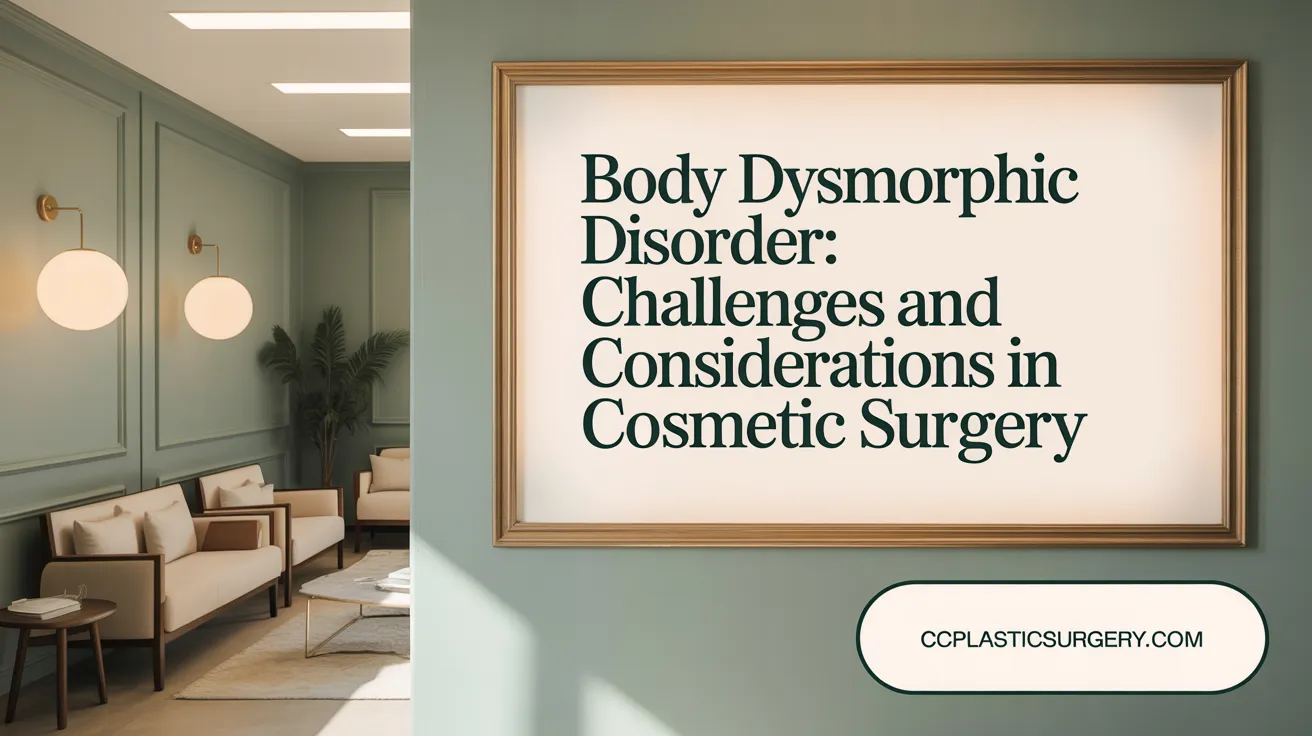
Body Dysmorphic Disorder (BDD) is a mental health condition characterized by a persistent preoccupation with perceived flaws in appearance, which are often unnoticeable to others. Research indicates that approximately 7-15% of individuals seeking cosmetic procedures may suffer from BDD. This prevalence highlights the importance of psychological assessment in the cosmetic surgery field.
Patients with BDD are often dissatisfied with surgical results. Studies show that they frequently do not experience improvement after procedures such as rhinoplasty or breast augmentation. In fact, some may feel worse, reporting heightened disappointment and psychological distress postoperatively.
For individuals with BDD, cosmetic surgery rarely alleviates their concerns. Instead, dissatisfaction remains high, and the procedure can sometimes trigger or worsen depression, anxiety, and social withdrawal. These outcomes emphasize that surgery is not an appropriate solution for BDD-affected patients.
Managing BDD poses considerable challenges. Patients often have unrealistic expectations, and their preoccupations can persist or intensify after surgery. This difficulty underscores the necessity for thorough preoperative psychological evaluations to identify BDD early.
Screening for BDD and other mental health issues before surgery can improve outcomes. Involving mental health professionals can help determine if surgery is appropriate, or if psychological treatment should be prioritized. Such an approach aims to prevent poor outcomes, reduce patient suffering, and promote overall well-being.
| Aspect | Details | Additional Notes |
|---|---|---|
| Prevalence | 7-15% among cosmetic surgery applicants | Highlights need for screening |
| Postoperative satisfaction | Often low in BDD patients | Surgery may not address underlying issues |
| Psychological management | Essential pre- and post-surgery | Helps improve patient selection and outcomes |
| Challenges | Unrealistic expectations, persistent preoccupations | Require multidisciplinary approach |

Most individuals pursuing cosmetic procedures are psychologically healthy. However, a notable portion exhibits pre-existing mental health conditions, including mood disorders such as depression and anxiety, which can influence surgical outcomes.
Patients with conditions like depression, anxiety, and personality disorders often face higher risks of less favorable outcomes. These may include dissatisfaction with surgical results, heightened emotional distress, or social withdrawal.
Postoperative emotional reactions can be significant. Studies show that up to 30% of patients, especially those with pre-existing depression or neurotic traits, may experience depression after facial procedures like face lifts or rhinoplasty.
Preoperative anxiety and depression are associated with increased pain perception at six months post-surgery. This suggests that mental health plays a role in physical recovery experiences.
Screening for mental health issues such as body dysmorphic disorder (BDD), depression, and anxiety is crucial. Psychological support before and after surgery can help manage expectations and reduce risks of negative outcomes.
When performed with appropriate psychological support, cosmetic procedures can boost self-esteem, reduce social anxiety, and improve overall quality of life. Many patients report feeling more confident and participating more actively in personal and professional settings.
| Aspect | Impact/Observation | Additional Details |
|---|---|---|
| Mood disorders in patients | Higher prevalence among cosmetic surgery seekers | Over 20% have pre-existing mood issues |
| Postoperative depression | Can occur in up to 30% of facial surgery patients | Especially in those with prior depression |
| Psychiatric screening | Essential for better outcomes | May involve evaluating for BDD, anxiety, etc. |
| Pain perception | Elevated in patients with anxiety and depression | Affects recovery and satisfaction |
| Psychological support | Reduces risks and enhances results | Pre- and post-surgery counseling recommended |
Understanding the psychological landscape of patients helps ensure safer, more satisfying surgical experiences. Addressing mental health proactively can lead to better physical results and improved overall well-being.

Setting realistic expectations is crucial for ensuring positive psychological outcomes after cosmetic surgery. When patients understand that perfection is unattainable and that results vary based on individual factors, they are more likely to feel satisfied with their procedural outcomes. A clear, honest discussion with a qualified surgeon can help align patient hopes with achievable results, promoting enhanced self-esteem and body image.
Patients harboring unrealistic expectations risk developing dissatisfaction, which can lead to emotional distress, depression, and even social withdrawal. Studies show that individuals who expect flawless results often experience disappointment if these expectations are not met, affecting their overall mental health and quality of life.
Educating patients about the limitations of cosmetic procedures is essential. Surgeons should explain that no surgical intervention can completely eliminate insecurities or guarantee an ideal appearance. This understanding helps mitigate feelings of frustration and fosters a healthier perspective on aesthetic enhancements.
Recovery from cosmetic surgery often involves emotional ups and downs. Many patients experience mood swings, anxiety, or depression during this time, especially if their expectations were not managed properly beforehand. Providing emotional support and ongoing communication can help patients cope with these fluctuations more effectively.
A patient-centered approach, emphasizing open and empathetic communication, is vital. Surgeons must listen to patient concerns, clarify misconceptions, and set attainable goals. This proactive engagement enhances trust, improves satisfaction, and supports emotional resilience throughout the surgical journey.
| Aspect | Focus | Impact on Outcomes |
|---|---|---|
| Expectations management | Realistic goal setting | Increased satisfaction and reduced disappointment |
| Psychological support | Emotional resilience during recovery | Better mental health and coping strategies |
| Education about procedure limits | Clarifying what surgery can achieve | Prevents unrealistic hopes, enhances trust |
| Communication style | Openness and empathy | Builds rapport, supports emotional well-being |
Effective expectation management and strong communication are essential for fostering positive psychological experiences and long-term satisfaction in cosmetic surgery.
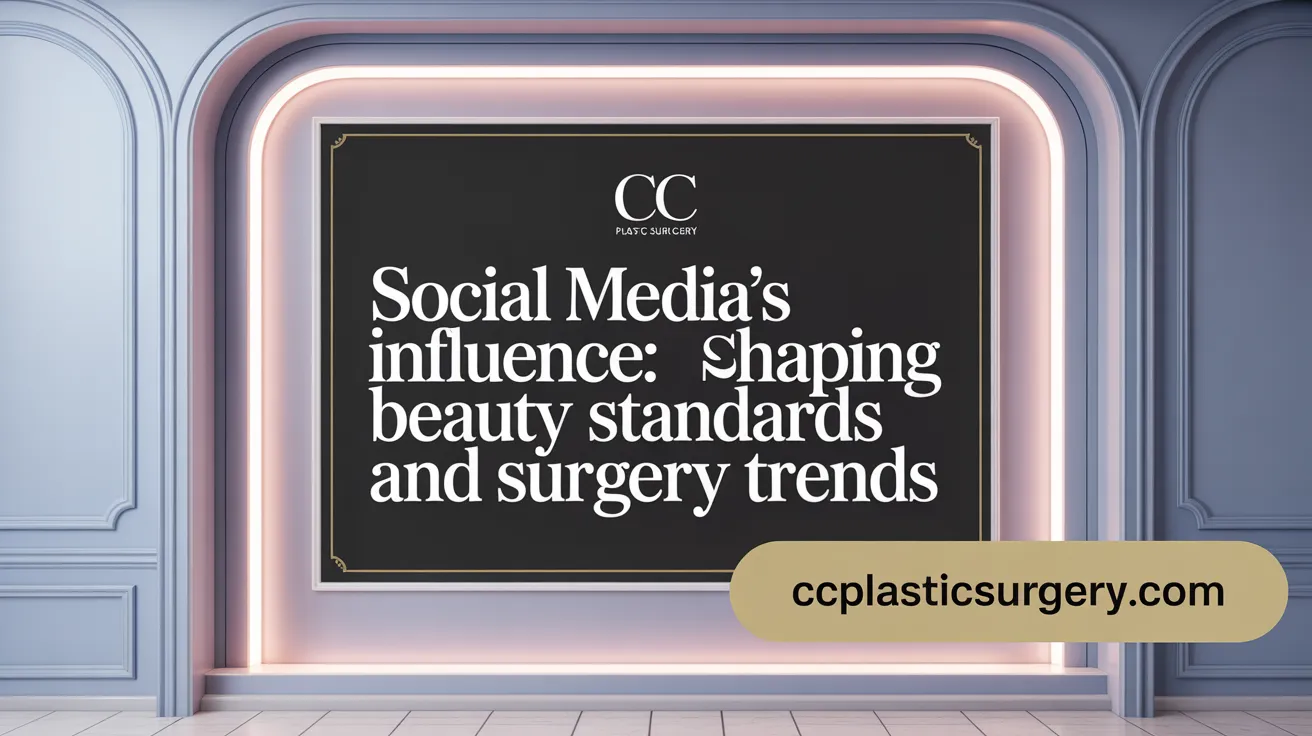
Social media platforms have transformed the way society views beauty. Influencers and celebrities often showcase idealized images that set high, often unattainable standards. This proliferation of curated perfection encourages individuals to pursue cosmetic procedures to emulate these ideals. As a result, societal expectations intensify, leading many to see altering their appearance as a necessary step.
With the rise of video conferencing tools like Zoom and social media selfies, people are more aware of their appearance than ever before. Constantly viewing one's own reflection can highlight perceived flaws, increasing self-scrutiny and dissatisfaction. This phenomenon, sometimes called "Zoom dysmorphia," drives individuals to pursue cosmetic procedures to align their appearance with their inner self-image.
Society increasingly perceives aesthetic enhancement as an ongoing process rather than a one-time fix. Many now see cosmetic surgery as a routine part of self-care, akin to wearing fashionable clothing or grooming. This normalization lowers barriers to seeking multiple procedures over time, fostering a culture where beauty can be continuously refined.
Young adults are particularly susceptible to these influences. Social media's portrayal of perfect bodies and faces can distort self-perception, especially among those with pre-existing insecurities or mental health issues like body dysmorphic disorder. Vulnerable populations may feel pressured to undergo surgeries prematurely, sometimes without fully understanding the risks involved.
The relentless bombardment of idealized images can lead to heightened psychological stress. Some individuals develop compulsive tendencies, repeatedly seeking procedures to maintain or improve their appearance. This cycle may result in negative outcomes such as depression, social isolation, or dissatisfaction, especially if expectations remain unmet or if underlying mental health concerns are ignored.
| Aspect | Impact | Additional Notes |
|---|---|---|
| Beauty standards on social media | Increased pressure to conform | Set high, often unrealistic, ideals for appearance |
| Video conferencing effects | Heightened self-awareness and dissatisfaction | Can lead to "Zoom dysmorphia" |
| Normalization of procedures | Frequent pursuit of aesthetic changes | Considered part of routine self-care |
| Impact on youth | Greater susceptibility to influence | Pre-existing insecurities may worsen |
| Psychological stress | Elevated risk of mental health issues | May trigger compulsive surgeries or dissatisfaction |
This intersection of societal influences significantly shapes the demand for cosmetic surgery, often with complex psychological consequences. Understanding these factors is vital for healthcare providers to support patients ethically and effectively.
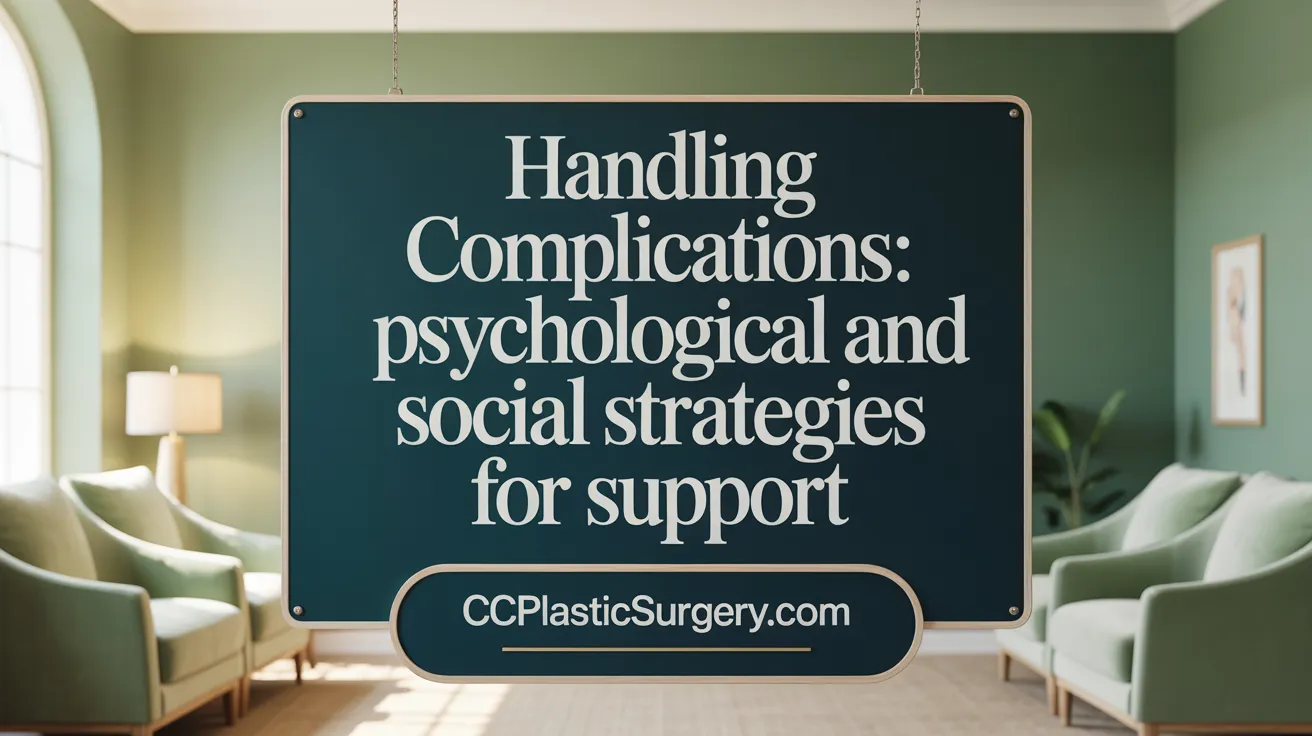
Complications from cosmetic surgery can lead to a wide range of challenges for patients. Physically, individuals may experience pain, scarring, or other unresolved medical issues. Psychologically, many face increased stress, anxiety, depression, and lowered self-esteem. Socially, complications can cause feelings of shame and social withdrawal, damaging relationships and support networks. Financially, patients often encounter unexpected expenses related to additional treatments or correcting procedures.
Patients frequently report feelings of shame and stigma after experiencing complications, which may lead them to conceal their issues from friends, family, or healthcare providers. Self-blame is common, with individuals criticizing themselves for perceived failures or poor outcomes. These feelings can worsen emotional distress and hinder efforts to seek help or support.
Due to societal stigma surrounding cosmetic surgery complications, many patients keep their struggles private, fearing judgment or rejection. This social isolation can intensify feelings of loneliness and diminish access to emotional support. Moreover, some find it challenging to find specialized medical or psychological help, further prolonging distress.
Despite experiencing complications, many patients still hold a strong desire to undergo additional cosmetic procedures. Influenced by societal norms and personal insecurities, they often see further surgeries as solutions to their issues. This persistent pursuit reflects how cultural perceptions of beauty and self-improvement continue to motivate individuals, even amid adverse experiences.
Enhanced pre- and post-operative psychological assessments are essential to prepare patients for realistic outcomes and coping strategies. Providing accessible counseling can help manage expectations, address emotional responses, and reduce stigma. Stronger patient support systems, including education about potential risks and guidance on dealing with complications, are crucial for improving overall patient well-being.
| Aspect | Impact | Additional Notes |
|---|---|---|
| Physical | Pain, scarring, medical issues | Medical follow-up may be necessary |
| Psychological | Anxiety, depression, low self-esteem | Counseling can help address these issues |
| Social | Shame, social withdrawal | Social support mitigates negative feelings |
| Financial | Unexpected expenses, debt | Transparent cost discussions important |
| Emotional Reaction | Shame, guilt, self-blame | Open communication reduces feelings of isolation |
Addressing these challenges comprehensively can help patients recover emotionally and socially, leading to better long-term outcomes.

Research indicates that people who have experienced adverse childhood experiences, such as emotional or physical abuse, neglect, or bullying, tend to have higher rates of seeking cosmetic procedures. These individuals often report lower self-esteem and body dissatisfaction, which can motivate them to pursue changes in their appearance. For some, cosmetic surgery offers a pathway to rebuild confidence and address the psychological scars of childhood trauma.
In certain cases, plastic surgery is viewed as a way to heal or improve psychological wounds related to childhood trauma. Some patients perceive their procedures as an opportunity to rectify long-standing insecurities or to reclaim control over their appearance. Participants in various studies have described their experience with cosmetic surgery as a form of emotional recovery, contributing positively to their mental health.
Many individuals report increased self-esteem and confidence following cosmetic procedures. For example, improved body image after surgeries like rhinoplasty or abdominoplasty can decrease feelings of shame and social anxiety rooted in childhood experiences. Additionally, some studies suggest enhanced overall mental health and well-being, with patients feeling more comfortable in social and personal situations.
Beyond physical changes, facial and body procedures can promote emotional healing. Patients often share stories of overcoming long-standing emotional distress, with some experiencing a reduction in symptoms of depression or anxiety. These positive mental health outcomes are sometimes linked to the sense of empowerment gained through taking active steps to improve one’s appearance.
While cosmetic surgery can provide immediate improvements in appearance and confidence, its long-term psychological benefits depend on realistic expectations and psychological readiness. Incorporating psychological assessment and support before and after surgery can optimize outcomes, ensuring that individuals not only look better but also feel better emotionally, promoting sustained mental health improvements and personal growth.
| Aspect | Impact | Additional Notes |
|---|---|---|
| Mental health | Increased confidence, reduced body dissatisfaction | Especially notable in cases of correcting long-term insecurities |
| Emotional healing | Decreased symptoms of depression and anxiety | Can serve as part of the recovery from childhood trauma |
| Psychological stability | Better social functioning and personal well-being | Needs ongoing support and realistic expectations |
| Long-term effects | Sustained self-esteem boost | Requires appropriate psychological guidance |
In summary, for some individuals with childhood trauma, cosmetic surgery can be more than just an aesthetic change. It has the potential to contribute to emotional healing and improved mental health, provided it is approached with careful psychological assessment and ongoing support.
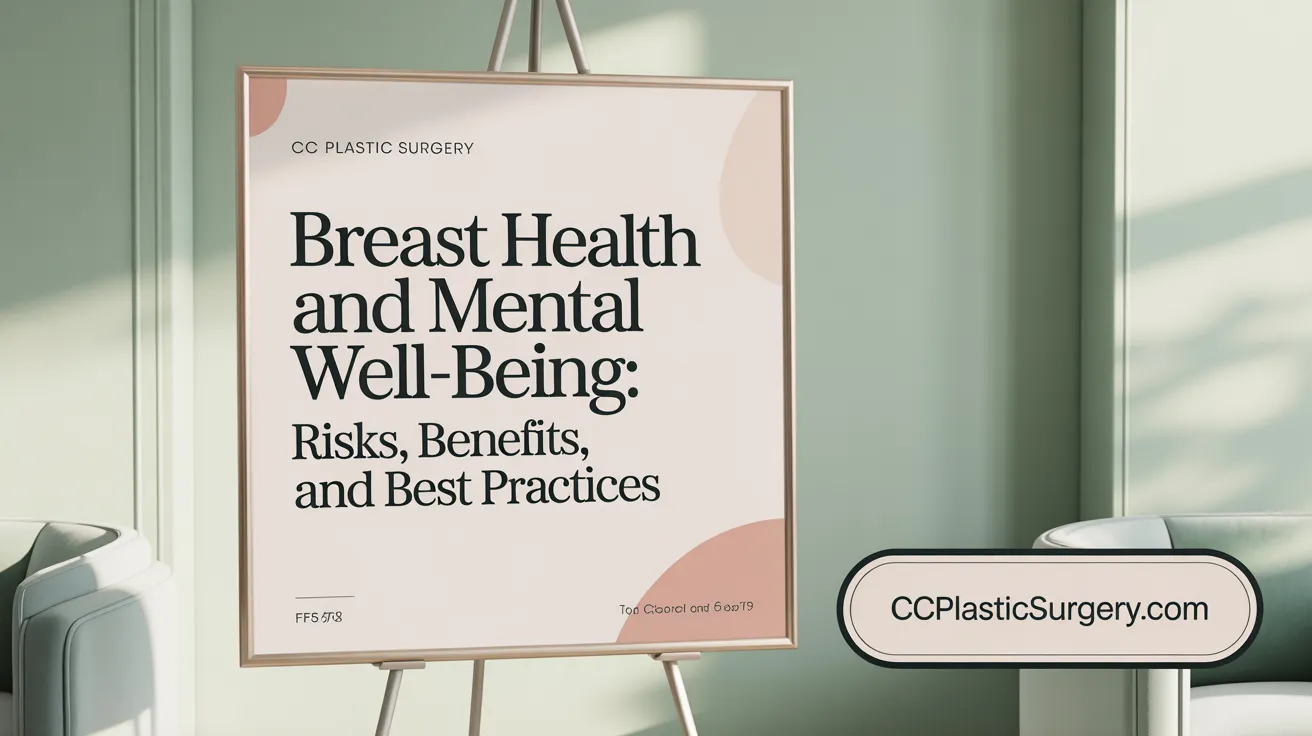
Women opting for breast augmentation often experience elevated levels of mental health challenges before the surgery. Studies show they tend to report greater instances of depression, anxiety, and eating disorders, often stemming from long-standing body image concerns. This pre-existing emotional distress can influence their perception of surgical outcomes and overall well-being.
Research indicates that women who receive breast implants face a threefold increase in the risk of suicide compared to the general population. This alarming fact suggests that underlying psychiatric conditions, such as depression and anxiety, may play a significant role. It highlights the importance of thorough psychological evaluation and ongoing mental health support for these patients.
Preoperative assessments often reveal that many women seeking breast augmentation suffer from related mental health problems, including depression, anxiety, and eating disorders. These issues not only influence their decision to undergo surgery but also affect their recovery and satisfaction afterward.
Given the substantial mental health risks, implementing psychological screening before and after surgery is vital. Such monitoring helps identify patients at risk of poor outcomes, ensures realistic expectations, and provides support to manage emotional fluctuations related to body image and surgical results.
While breast augmentation can boost confidence and improve body image, awareness of the possible psychological downsides is crucial. Tailoring care involves comprehensive psychological assessments, managing expectations realistically, and offering mental health support when necessary. This balanced approach aims to maximize benefits while minimizing potential harm.
| Aspect | Details | Additional Notes |
|---|---|---|
| Preoperative concerns | Depression, anxiety, eating disorders | Often related to long-term body dissatisfaction |
| Postoperative risks | High dissatisfaction, depression, suicidal ideation | Emphasizes need for psychological support |
| Psychological screening | Recommended before surgery | Helps detect at-risk individuals |
| Outcomes | Improved confidence, self-esteem | Balanced by potential psychological vulnerabilities |
Plastic surgery stands at the convergence of physical transformation and profound psychological and social implications. While it offers significant opportunities for enhancing self-esteem, body image, and quality of life, the journey is complex and individualized. Patients benefit when treated holistically—with careful psychological assessment, realistic expectation management, and supportive aftercare. Recognizing vulnerable populations, such as young adults and those with body dysmorphic disorder, is essential to minimize risks and promote positive outcomes. Personal narratives reveal that beyond external changes, plastic surgery profoundly influences emotional well-being and social relationships, underscoring the importance of viewing these procedures through a compassionate, patient-centered lens. As the field advances, integrating psychological insights with surgical expertise will be key to ensuring that cosmetic interventions truly contribute to healthier, more fulfilling lives.

February 21, 2026
Discover how to prevent keloid scars after surgery with our definitive guide. Learn expert strategies for risk assessment, surgery, and post-op scar care.
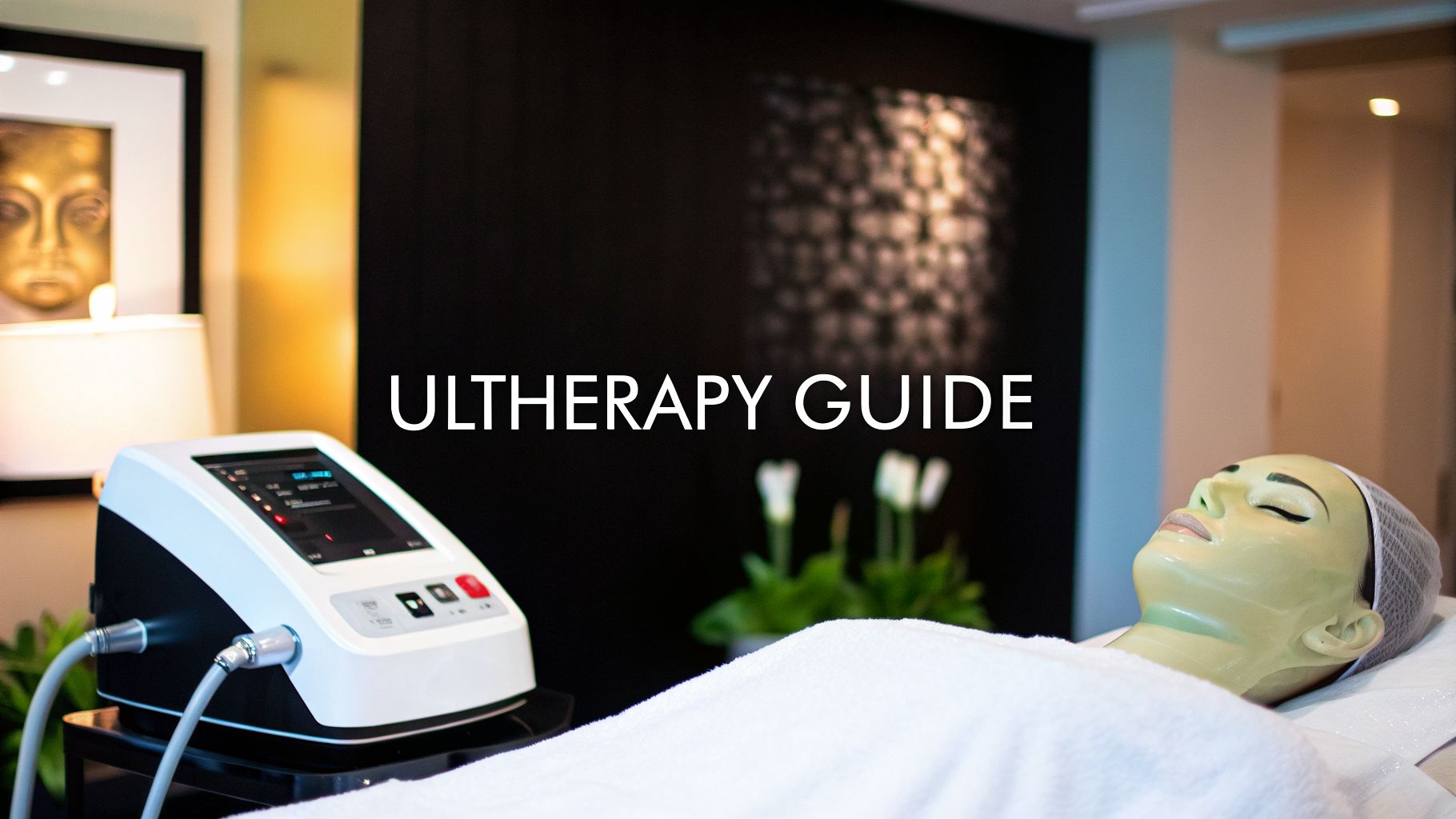
February 20, 2026
What is Ultherapy treatment? Explore this non-surgical facelift, how it uses ultrasound to lift skin, and what results you can expect from the procedure.

February 19, 2026
Explore stunning cheek filler before and after results. See real patient photos, learn about filler types, and discover what's possible for your facial contour.